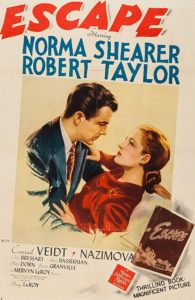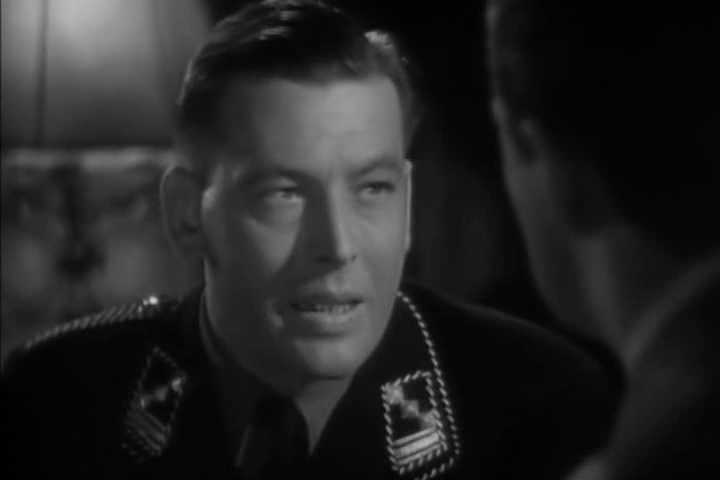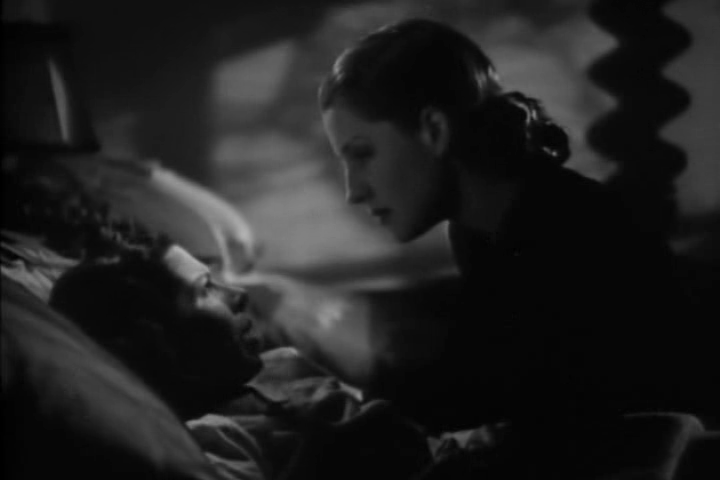“My mother — what’s she got to do with death? She’s life!”
|

Synopsis:
The son (Robert Taylor) of a famous actress (Nazimova) who has gone missing after selling her late husband’s estate in Germany attempts to track her down, but finds all citizens fearful and evasive about her fate in a concentration camp. Will Taylor be able to count on either the support of an American-born, widowed countess-turned-headmistress (Norma Shearer) whose lover (Conrad Veidt) is a general in the Nazi army, or a kind-hearted doctor (Philip Dorn) with a lifelong admiration for Nazimova?
|
|
Genres:
- Actors and Actresses
- Bonita Granville Films
- Conrad Veidt Films
- Mervyn LeRoy Films
- Nazis
- Norma Shearer Films
- Robert Taylor Films
- Search
Review:
This early anti-Nazi film by MGM Studios was banned by Hitler — no surprise, given that it pulls absolutely no punches about the dangers of Germany’s totalitarian government, which is shown as willing to mercilessly execute a beloved actress for attempting to legitimately take her own money out of the country. Shearer’s character feels a bit too deliberately crafted as a beautiful American with torn loyalties, but Dutch-born Dorn (who fled Nazi-occupied Europe to continue his career) is excellent as a doctor who shows increasing bravery over the course of the story. We’re kept on our toes about how things will work out, and a very real air of death looms over the entire affair, making it a worthy entry in early cinematic outings about the Nazi threat to humanity.
Redeeming Qualities and Moments:
- Philip Dorn as Dr. Ditten

- Robert Planck’s cinematography

Must See?
No, but it’s worth seeking out by fans of films from this unique era.
Links:
|
One thought on “Escape (1940)”
First viewing – not must-see, though it’s likely to be of some genuine interest to those (like myself) who study films covering WWII. Outside of it being listed in Peary’s book, I’d never heard of this film – odd for a film released by a major studio (MGM) which was a box office success.
In a way, this is indeed a tough call when it comes to a recommendation – since the storyline alone is compelling and a number of sequences make it worth a watch. The main drawback is that the film can’t help but be affected by an intrusive Hollywoodization that threatens to substitute believable drama with unnecessary melodrama. (An inordinate amount of the dialogue is a bit much when realism would have sufficed.)
As a result, the two leads benefit least: Taylor’s Mark (though his love for his mother is understood) rams through conversations at almost every opportunity, out of pronounced American gung-ho, without any awareness that he’s in a different country and culture. For her part, Shearer (someone I always find too actor-y anyway, though here she sometimes tones it down a bit) seems mainly aware that she’s a film star instead of playing a character.
Veidt and Dorn come off the most effectively, both doing their best to play a genuine reality in spite of the overall tone of the script. There are those who will, no doubt, want to see the famous Nazimova in one of her rare, non-silent film appearances.
Fave sequence: Taylor is in a cafe waiting for Dorn and unaware that Dorn has been detained by the Nazis. In a long and tense segment – which somehow reminded me of the famous cafe sequence between Jane Fonda and Vanessa Redgrave in ‘Julia’: Taylor must keep his cool while being mercilessly questioned by Nazi officers and eventually escorted away from the cafe.